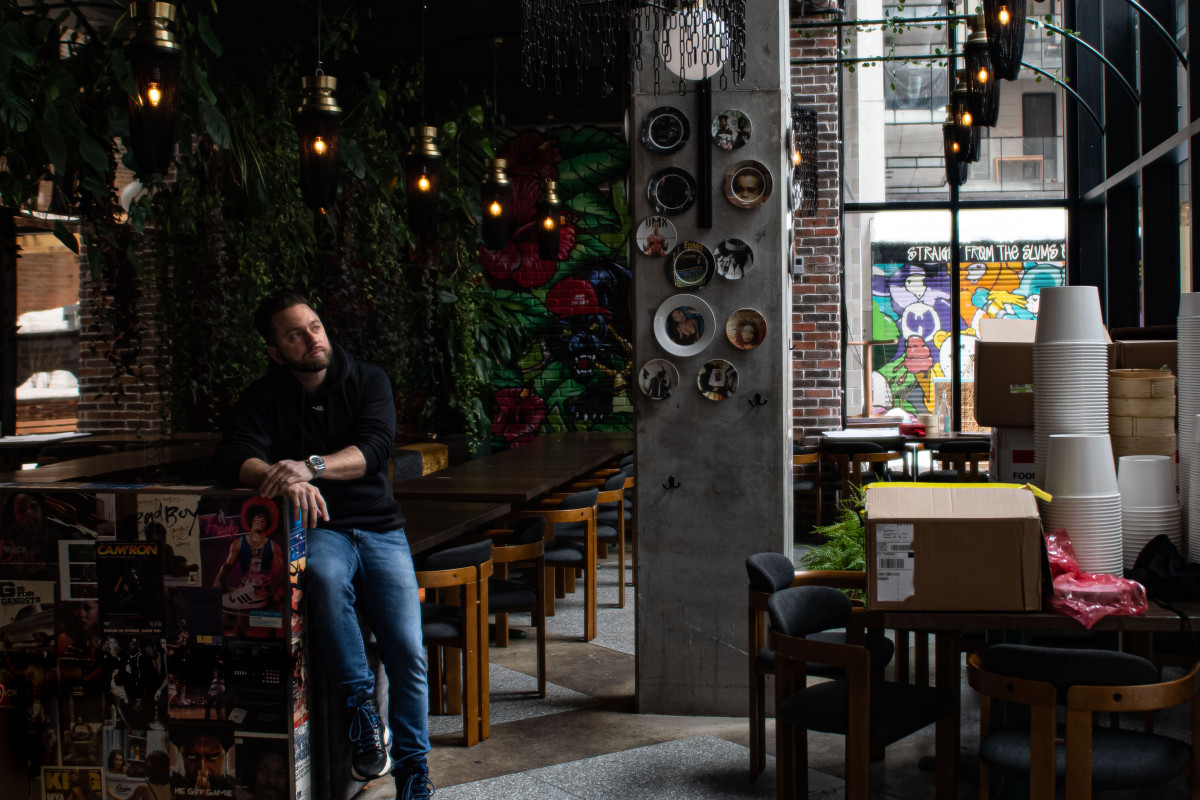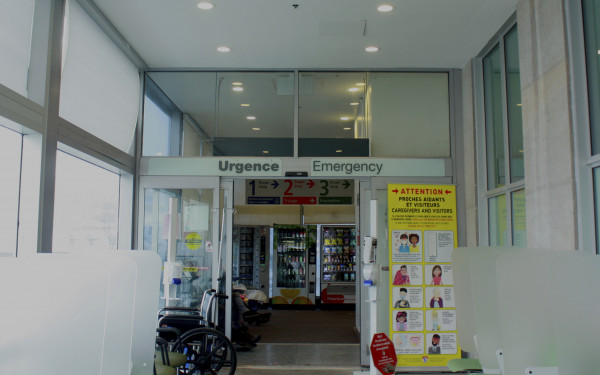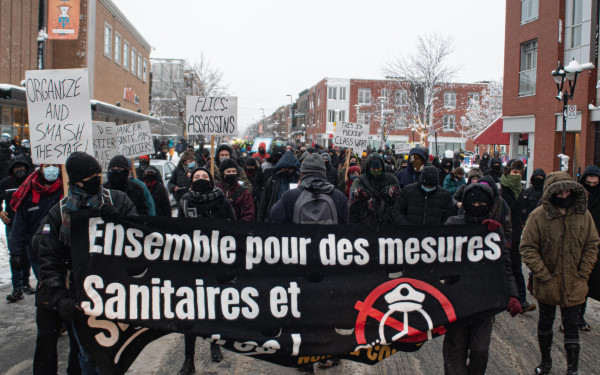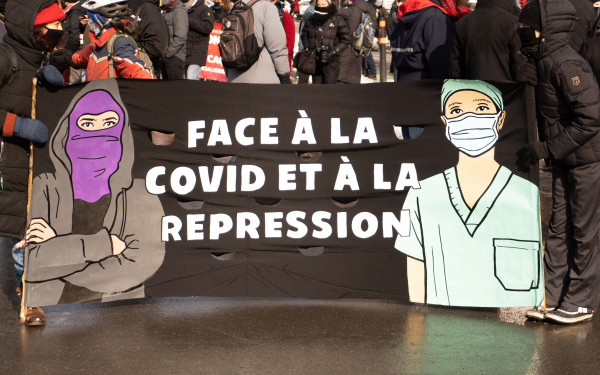Delivery apps cause financial strain on restaurants already struggling in pandemic
The unregulated charges imposed by food delivery services are making tough times even tougher for restaurants during the pandemic. Photo Philippe Champagne
Unregulated commission fees create slim profit margins for restaurant owners
John Edward Gumbley, known around Montreal as "Jon Jay," is a restaurant and club owner who has been in restorations for years.
Gumbley's group, JEGantic, has established many restaurants in the city like The Farsides and Bord’elle. After coming off a record year, Gumbley claims that since the pandemic began, his businesses have been at a near standstill. “It was terrible, you went from having a career year and all the businesses were doing fantastic. Then all of a sudden, nothing. It was depressing,” he said.
Though his businesses survived the first wave of the pandemic, it was heavily affected by the second wave." It became much worse when we abruptly closed in September. They gave us no notice, causing particularly restaurants across the city to take huge losses because we just spent the money on dividers and masks,” he said. “To shut us down in 48 hours made us lose around $20,000 of inventory. The way they shut us down was really detrimental.”
The inability to have clients across COVID-19 red zones made restaurants resort to mainstream delivery services like Uber Eats, DoorDash, and SkipTheDishes. Delivery companies can take up to 30 per cent per order regardless of the total amount, giving them the ability to take a significant percentage off every order restaurants fulfill.
With all the fees and taxes contributed into the order, even if an order is close to a restaurant, Gumbley says when everything is said and done, on a $130 bill, restaurants see nearly half their profits vanish. “We have the staff, we have the product, we pay the rent including all of the fixed expenses,” he said. “All they do is pick it up and deliver it, and we're left with 50 per cent of what the client spent.”
A high commission percentage
Martin Vezina, a spokesperson for the Association Restauration Quebec, an association that protects restaurants, and restaurant owners across Quebec on a representative and government level, says a percentage based commission fee is too high for local restaurants trying to stay afloat. “It’s a 30 per cent fee placed before taxes on the bill, so if you have a bill of $100, at least $30 is going to the app, and we're not even accounting for taxes," he explained.
Vezina can’t stress enough that due to the inability to welcome clients, many restaurants don't have the resources to hire their own delivery personnel and have no other option than taking on these delivery apps, including their high commission fees. "They would need to buy cars, hire delivery employees, for many, they don't have the money to invest so the only way out is to subscribe to these third party apps," Vezina said.
According to DoorDash in an email sent to The Link, the commission fees account for things like background checks, credit card processing fees, customer support, insurance, advertising and marketing, and the DoorDash app and website.
Though the list may sound hefty, Vezina claims these companies are overcharging regardless. “Yes, I understand that they have things to pay, but it doesn't add up to 30 per cent. What we need is a fixed rate.”

A possible solution for local restaurants
Vezina proposes a fixed rate fee where restaurants will pay around the same amount every time instead of a percentage regardless of the order's size and delivery distance.
He believes cooperatives can become a solution for restaurants around the province. Many co-ops are now offering delivery services for Montreal restaurants. Eva, a co-op ridesharing service, provides a fixed rate ranging from $6-$8 depending on the distance of the order, regardless of the total order amount. Interacting through the companies that produce websites for local restaurants, Eva could charge a fixed rate rather than a percentage based fee.
Dardan Isufi, chief operating officer of Eva says his business was also affected by the pandemic, but that he quickly changed his business model to offer a delivery service for restaurants.
"We’re originally a ride share app, and since the pandemic we lost 98 per cent of our service,” he said. “We turned to deliveries, we said, ‘Eh, we have a network of drivers with a fleet of vehicles, why not implement this fleet to do deliveries?’”
Not all apps offer the same commission fee
Though all mainstream delivery apps in Quebec offer a commission percentage fee, some apps provide different percentages. Though no percentage cap is set in Quebec, apps like SkipTheDishes and DoorDash offer lower percentage fees at around 20 per cent because they have to compete with the popularity of Uber Eats.
In Gumbley’s experience, UberEats customer service doesn’t supply any assistance with restaurants that are posted on their listing. He claims Uber Eats is not supplying his business with the help necessary to be on the app. He thinks they know they’re a major player in the market, and can leave restaurants feeling helpless and unanswered because of this.
“With the other apps, you could get five to seven per cent off from what Uber Eats is offering. [Uber Eats] know[s] that they have the power, they have the biggest following, they sell the most food,” Gumbley said. “They’ve taken a hard stance that this is the cap they want and you have no choice. If you don’t want it, then don’t do it.”
When his account was activated with Uber Eats, the representative assigned to his restaurant ultimately became inactive and didn’t help the restaurant it was supposed to represent. "Your account rep disappears, they don't answer your emails, they don't talk to you, they don't help you list anything, they just get you for the 30 per cent, they list you, and you get no service from them at all," he said.
Though Mayor Valérie Plante is urging the provincial government to issue a cap on commission fees, Premier François Legault hasn’t placed one.
“The Canadian government recognized the high commission fees and covered a portion of the fees from these delivery services or entered into arrangements with them and the restaurant industry,” he said. “In Quebec, of course they did not do that, and they shut us down during the worst lockdown in the whole country and forced us to be stuck and to be picked at by the vultures that are Uber Eats and those companies.”




